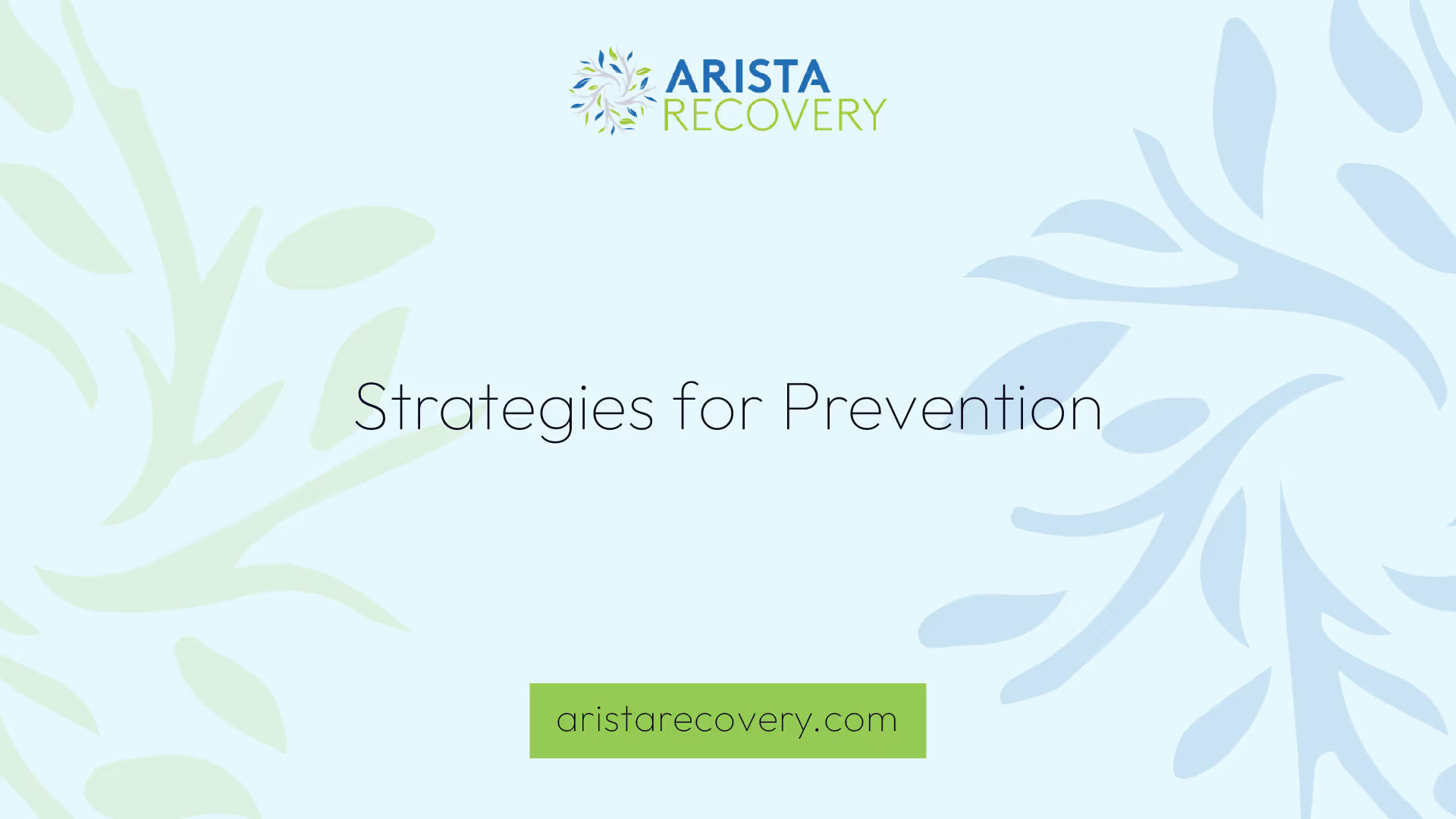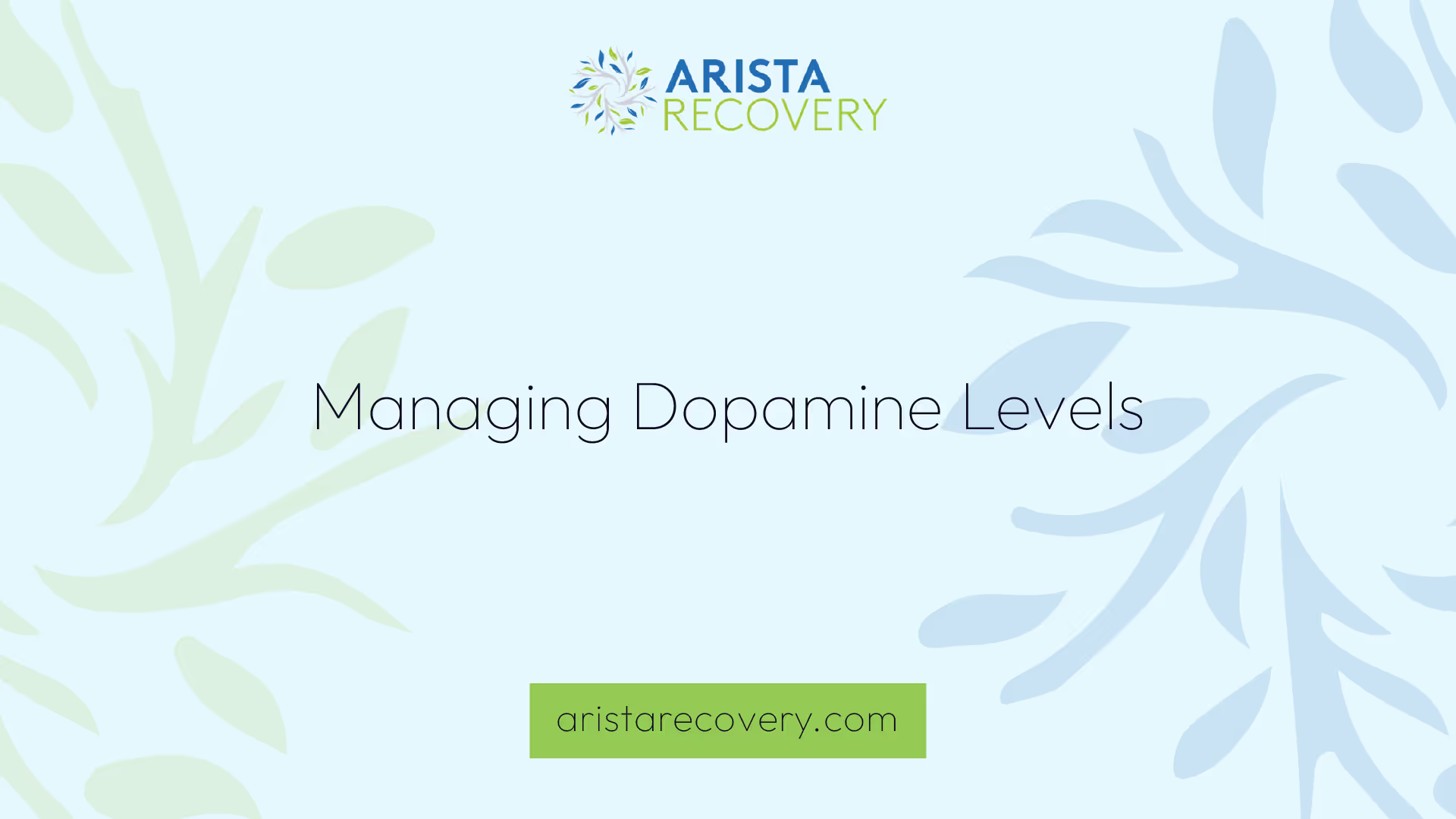How to Stop Dopamine Addiction


Understanding Dopamine Addiction
Defining Dopamine Addiction
Dopamine addiction occurs when a person becomes dependent on activities or substances that overstimulate the brain’s dopamine pathways, causing obsessive behavior despite negative consequences. Constantly pursuing pleasure and reward, this addiction interferes with regular functioning and decision-making. It's essential to understand that individuals become addicted to activities or substances causing a dopamine surge, rather than dopamine itself.
Dopamine is a neurotransmitter that plays a crucial role in the pleasure and reward areas of the brain. It is essential for functions like motivation, mood, and memory. When activities or substances cause excessive dopamine release, the brain associates these actions with high pleasure, leading to compulsive behavior.
Causes of Dopamine Addiction
The main causes of dopamine addiction are influenced by a combination of biological factors, lifestyle choices, and environmental influences. Key factors include:
- Biological Factors: Age, gender, and genetics play a significant role in susceptibility to dopamine addiction. Some individuals may be genetically predisposed to seek out high-dopamine activities or substances [1].
- Lifestyle Choices: Engaging in activities that provide immediate pleasure, such as excessive use of social media, gambling, or substance abuse, can lead to dopamine addiction. These activities overstimulate the brain’s reward pathways, making it difficult to resist the urge to partake in them regularly.
- Environmental Influences: A person's environment, including their social circle, stress levels, and exposure to high-dopamine activities, can contribute to the development of dopamine addiction.
Understanding these causes is crucial in addressing and preventing dopamine addiction. Setting boundaries, practicing mindfulness, and seeking therapy are effective strategies for prevention. For more information on managing dopamine levels and achieving balance, visit our guides on how to stop phone addiction for students and how to stop online shopping addiction.

Symptoms and Impacts
Recognizing Dopamine Addiction Symptoms
Understanding the symptoms of dopamine addiction can help individuals and families recognize when professional intervention may be necessary. While dopamine itself is not directly addictive, activities or substances that trigger an overabundance of dopamine release can lead to obsessive behavior patterns.
Key symptoms of dopamine addiction include:
- Compulsive Engagement: Continuously engaging in the activity or using the substance despite negative consequences.
- Failed Attempts to Quit: Repeatedly trying and failing to stop the addictive behaviors.
- Increased Tolerance: Needing more of the activity or substance to achieve the same pleasurable effect.
- Withdrawal Symptoms: Experiencing discomfort or distress when not engaging in the activity or using the substance.
Consequences of Dopamine Addiction
The impacts of dopamine addiction can be far-reaching, affecting various aspects of an individual's life. The consequences often extend beyond personal health, influencing relationships, work, and overall quality of life.
Some of the significant consequences include:
- Emotional and Mental Health Issues: Dopamine addiction can lead to anxiety, depression, and other mental health disorders as individuals struggle to cope without the addictive behavior or substance.
- Social Isolation: Persistent engagement in dopamine-inducing activities can result in social withdrawal, straining relationships with family and friends.
- Physical Health Problems: Depending on the nature of the addiction, individuals may experience various physical health issues, such as weight gain from a soda addiction or repetitive strain injuries from phone addiction.
- Financial Instability: Addictions such as online shopping can lead to significant financial debt and instability.
- Decreased Productivity: Addiction can impact an individual's ability to perform effectively at work or school, leading to poor academic or professional performance.
Recognizing and addressing these symptoms and impacts is crucial for those seeking to understand how to stop dopamine addiction and regain control over their lives. For more information on managing specific addictions, explore our articles on how to stop YouTube addiction and how to break sugar addiction naturally.

Strategies for Prevention
Preventing dopamine addiction involves a combination of setting boundaries, practicing mindfulness, and seeking therapy. These strategies can help individuals maintain a healthy relationship with dopamine and avoid addictive behaviors.
Setting Boundaries
Setting boundaries is a crucial step in preventing dopamine addiction. By establishing limits on activities that trigger excessive dopamine release, individuals can prevent compulsive behaviors. This includes setting time constraints on activities like social media, video games, and online shopping. For more tips on setting boundaries for specific addictions, visit our articles on how to stop phone addiction for students and how to stop online shopping addiction.
Mindfulness Practices
Mindfulness practices can be effective in managing dopamine levels and preventing addiction. Techniques such as meditation, deep breathing exercises, and mindfulness-based stress reduction help calm the nervous system and promote a balanced dopamine release. Engaging in activities mindfully allows individuals to savor experiences without becoming overly dependent on dopamine spikes. For more information on breaking other types of addictions naturally, check out our guide on how to break sugar addiction naturally.
Mindfulness practices include:
- Meditation
- Deep breathing exercises
- Mindful walking
- Yoga
Seeking Therapy
Seeking therapy is another vital strategy for preventing dopamine addiction. Professional therapists can help individuals understand the underlying causes of their addiction and develop coping mechanisms to manage their dopamine levels. Behavioral therapy and counseling can provide the support needed to establish healthy habits and avoid addictive behaviors [1].
Types of Therapy:
- Cognitive Behavioral Therapy (CBT)
- Dialectical Behavior Therapy (DBT)
- Individual Counseling
- Group Therapy
Therapy can be particularly beneficial for those struggling with specific addictions. For more resources, explore our articles on how to stop a soda addiction and how to stop YouTube addiction.
By implementing these strategies, individuals can effectively prevent dopamine addiction and maintain a balanced, healthy lifestyle.
Managing Dopamine Levels
Importance of Healthy Dopamine Levels
Dopamine plays a crucial role in various functions such as motivation, mood, and memory. Maintaining healthy dopamine levels is essential for daily functioning and overall well-being [2]. Adequate dopamine levels are necessary to:
- Enhance mood stability
- Improve focus and concentration
- Boost motivation and drive
- Support cognitive functions like memory retention
Healthy dopamine levels help in reinforcing pleasurable sensations and behaviors, which is important for developing positive habits. It's essential to understand the balance needed to prevent addiction tendencies while ensuring optimal mental and physical health.
Risks of Low Dopamine Levels
Low dopamine levels can lead to a variety of mental and physical health issues. When dopamine is deficient, individuals may experience several symptoms that can significantly impact their quality of life. Some of these symptoms include:
- Depression
- Insomnia
- Anxiety
- Low self-esteem
- Lack of motivation
- Low sex drive
- Psychosis
A deficiency in dopamine is linked to conditions like Parkinson’s disease, restless legs syndrome, and depression [3]. The following table outlines the potential impacts of low dopamine levels:
Unnatural dopamine dumps from excessive or artificial stimulation can negatively affect dopamine production and overall brain function. This can lead to desensitization of dopamine receptors, contributing to mental health disorders like addiction, depression, anxiety, or ADHD [3].
For those looking to break free from addiction, understanding the importance of maintaining healthy dopamine levels and recognizing the risks associated with low dopamine is crucial. This knowledge can aid in better managing dopamine levels and adopting healthier habits.
To learn more about specific addiction management strategies, consider exploring our articles on how to stop phone addiction for students, how to stop online shopping addiction, and how to stop a soda addiction.
Treatment Approaches
Addressing dopamine addiction involves a combination of behavioral therapy and medication-based treatments. These approaches aim to help individuals regain balance and manage their addiction effectively.
Behavioral Therapy
Behavioral therapy is a cornerstone in treating dopamine addiction. This form of treatment involves medical care and talk therapy, particularly effective for behavioral addictions such as gambling or excessive screen time. Therapy sessions help individuals understand the root causes of their addiction, develop coping strategies, and modify harmful behaviors. According to Healthline, combining medical care with talk therapy is essential for comprehensive addiction treatment.
Types of Behavioral Therapy
- Cognitive Behavioral Therapy (CBT): Helps in identifying and changing negative thought patterns.
- Dialectical Behavior Therapy (DBT): Focuses on emotional regulation and interpersonal skills.
- Contingency Management (CM): Uses rewards to reinforce positive behaviors.
Medication-Based Treatments
Medication-based treatments are particularly effective for substance use disorders, including opioid addiction. Research indicates that these treatments are the most effective for managing addiction, especially when combined with counseling [4]. Medication helps in stabilizing brain chemistry, reducing cravings, and preventing relapse.
Common Medications for Addiction Treatment
- Methadone: Used for opioid addiction to reduce withdrawal symptoms.
- Buprenorphine: Helps in decreasing opioid cravings.
- Naltrexone: Blocks the euphoric and sedative effects of drugs like heroin and alcohol.
For more information on addressing specific types of addictions, explore our guides on how to stop phone addiction for students, how to stop online shopping addiction, and how to stop a soda addiction.
By combining behavioral therapy with medication-based treatments, individuals battling dopamine addiction can find a balanced and effective path to recovery.
Achieving Balance
Dopamine Detox
Engaging in a dopamine detox can significantly benefit both mental and physical health. This process involves abstaining from activities that overstimulate the dopamine system, allowing the brain's reward pathways to reset and regain sensitivity. This reset enhances the pleasure derived from everyday experiences [3].
Psychiatrist Dr. Anna Lembke suggests starting with a 30-day dopamine fast. During this period, individuals take a break from addictive behaviors like social media, sugar, and video games to restore the pleasure-pain balance in the brain. This break allows the brain to reset and enjoy more modest rewards in the future.
For practical guidance on reducing specific addictions, see our articles on how to stop phone addiction for students and how to stop a soda addiction.
Community Support and Radical Honesty
For long-term change in addictive behaviors, radical honesty and community support are crucial. Being honest with oneself and others promotes intimacy, which can aid in recovery. Intimate human connections release dopamine and contribute to overall well-being.
People in recovery can benefit from avoiding excessive pleasure and seeking purposeful pain, such as through exercise or resisting temptations. This intentional balance between pleasure and pain helps reset reward pathways in the brain and leads to greater happiness [5].
For more insights on managing specific addictions, explore our articles on how to stop online shopping addiction and how to stop YouTube addiction.
References
[1]: https://diamondrehabthailand.com/what-is-dopamine-addiction/
[2]: https://www.verywellmind.com/can-you-get-addicted-to-dopamine-5207433
[3]: https://www.choosingtherapy.com/dopamine-addiction/
[4]: https://www.yalemedicine.org/news/how-an-addicted-brain-works
[5]: https://www.npr.org/2022/03/31/1090009509/addiction-how-to-break-the-cycle-and-find-balance
You’re not alone in this.
When mental health challenges and addiction intersect, it can feel isolating. At Arista, we offer compassionate, evidence-based, and trauma-informed care to help you heal, grow, and move forward.
You’re not alone in this.
When mental health challenges and addiction intersect, it can feel isolating. At Arista, we offer compassionate, evidence-based, and trauma-informed care to help you heal, grow, and move forward.
Support that moves with you.
You’ve taken a brave first step. At Arista Recovery, we’re here to help you continue with best-in-class care designed for long-term healing and support.
.webp)






